Somehow almost two years have slipped by and I haven’t written a personal post about our life here. In the beginning I tried to add a post every month or every milestone but then I guess I forgot?
I created a page some time ago that groups together all of my posts about moving and adjusting to life in Morocco, along with the issues that come up like medical emergencies or getting a residency card. So everything is in one neat and tidy place. (Go ahead over there to get caught up.)
Where are we now?
Well, we’re in the middle of year number three and things are pretty good. You might remember our initial plan was to spend one year here. The kids would learn Arabic and French and we’d go back to the US.
It was clear at the six month mark that wasn’t going to happen so we decided to stay a year, and then another. Someone told me when we were moving that I should keep a journal because I would want to remember even the most mundane things later on.
I wish I would have listened because as I think back now I am drawing a huge blank! There are so many things that I know happened but I have forgotten. So I’ll answer some of your questions to explain.
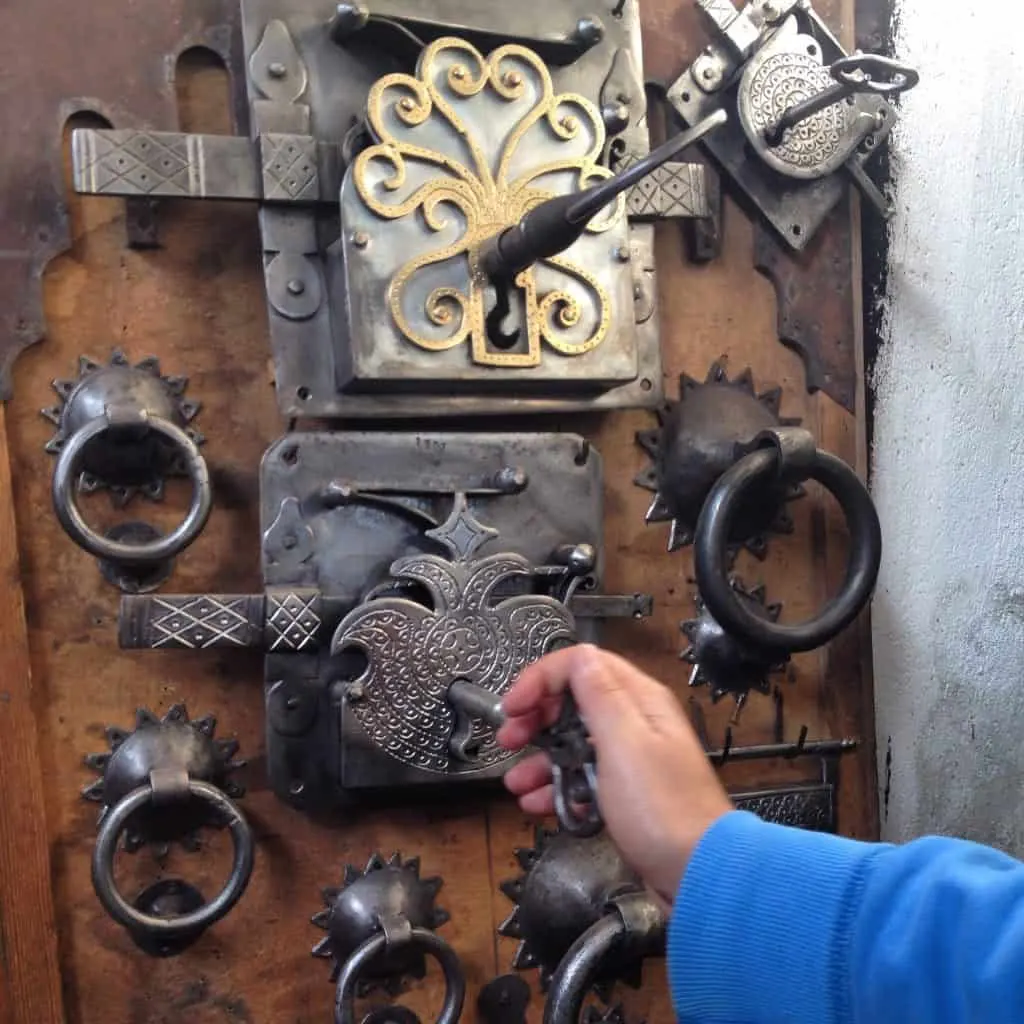
What are the biggest challenge(s) you’ve faced?
A loss of independence. No, not because I’m a woman (that’s what most people assume) but because of language hurdles. When you can’t communicate you become dependent on other people who can. Sure people in the tourist industry speak English so visitors don’t face many hurdles, but in everyday life? Forget it.
No one in my neighborhood speaks English. It’s Arabic or bust here. Not only did this make me an outsider, I couldn’t have conversations with anyone outside of other English speakers, my husband and kids. It’s so isolating. Now, I can understand almost 100% of what is being said, and if I don’t get all the words I get the main ideas.
I am at the conversational level of perhaps a 5 year old. Certain things are easier than others. I’m working to build my vocabulary and more verbs.
One of the downsides of traveling like I do is that there are many languages always in use. Even in Marrakech it’s nothing to use five languages in one day for simple things. Sometimes my brain is thinking in English but an Arabic word is the only one that comes to mind (and vice versa).
I could be trying to talk to someone in Spanish and French comes out. In a restaurant last week in Spain, I ordered for us in Arabic, Spanish, French and English all mashed into one sentence. It’s safe to say my brain is at a confused juncture but I hope that the kinks will start to work out.
One other challenge is that I can’t help my kids with their schoolwork. Here I am, well educated with a master’s degree but I can’t even help my 3rd grader do his homework. I can’t speak to his teachers, read a note they send home or write them a note. At the stage we are now I can verbally speak to them and understand them and they have started to send notes home in French so I can at least stand a chance at understanding. This is another HUGE language issue.
Are you still living in the combined household with in-laws? If so, what are your daily duties/contributions they expect within the family routine?
I had shared in the beginning that we lived in a family home with my in-laws. This is still the case. Our building is essentially 3 floors that are self contained apartments, with an open courtyard area in the middle.
We live in the top floor. I have a door to my house, my own kitchen, bathroom and bedrooms. Our floor is not “community property” and so no one just walks in. My daily contributions are nothing to the rest of the home. I am responsible for my floor only.
Initially, and were I Moroccan, there probably would be some expectation that I help with the cooking and cleaning on the other floors but that wasn’t going to happen, nor were it really possible with the fact that I work both from home and outside the home. We do contribute financially, paying the household bills and other various things my mother-in-law may need.
For me, the situation is not ideal because I still would like more privacy (remember the middle of the house is open), but it is nice having other adults around should we not be home for some reason, they can help with the kids.
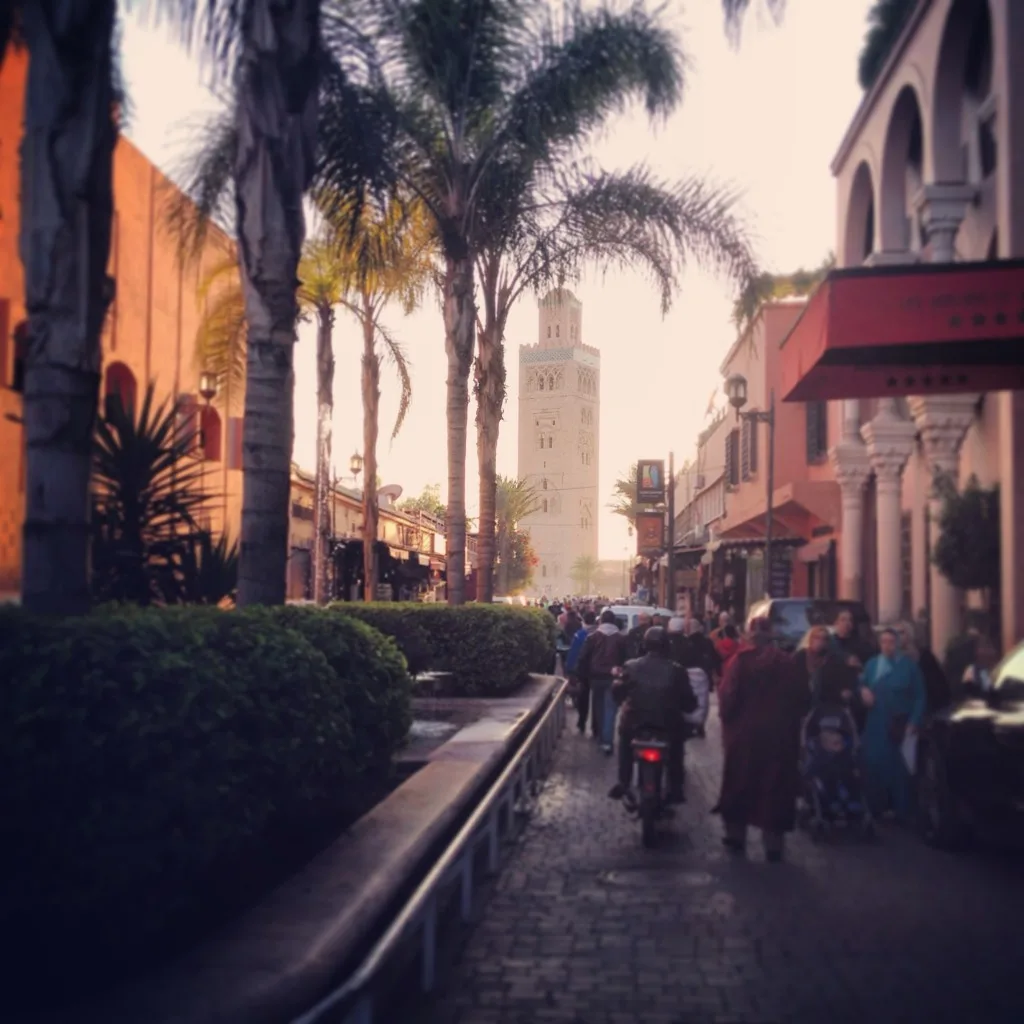
Can you get by in Morocco speaking only French?
Yes, you can get by speaking French but not everyone does. In my family it’s only the kids that do (mine and my nieces and nephews). Again, in the tourism sector this is a non-issue. In places that deal with foreigners, non issue. Government offices, yes they all speak French.
I’ve learned however there’s a few issues at play here with the French language. First, there’s a vein of Moroccans who do not have French competency. The story of the French language in Morocco is really interesting in and of itself (but I’ll save that for another time). I’ll just point out that for many people who went to school between the mid -1980’s and 2000, there is a lower level of French proficiency.
Anyone on either side of that likely has more French under their belt. If you get outside of urban areas French skills go down hill fast and with that you’ll also see Arabic taper off too. In some places people don’t use either language but use the local Amazigh (Berber) language of the region. Even in my neighborhood that is home to a lot of Berber families I end up in situations where everyone around me is speaking Tashelheit.
Second, it’s a class thing. Many “upper class” Moroccans use French because they believe (and in many ways this is true) that it elevates them to a different level of society. All things being equal, not speaking Arabic puts you in an interesting place.
You’ll always be on the outside because the most intimate and casual conversations are happening in darija. Those that only speak French are relegated to a certain sphere and in some ways even looked down on. Moroccans who choose to only speak French are sometimes seen as “uppity” or that they think they’re better than everyone else. These aren’t my opinions, I think you should just do whatever you can to get by, but this is what I’ve observed and heard over time.
How difficult is it to learn Arabic?
This is really subjective but I do find it quite difficult. Moroccan Arabic is a beast. The language is not written so you have to rely on understanding the spoken language. It also is a combination of languages and Arabic and French are used interchangeably when speaking.
You almost need a certain degree of fluency in both to understand. I have not spent any time, and don’t see myself learning to read and write classical Arabic.
The Arabic I use is purely conversational – survival Arabic – as I like to call it. I need to be able to get by in my daily life and be understood. This might change at some point but I’m happy now! If you have some background in French or Spanish learning darija becomes much easier. I am always happy when I get stuck on a word in Arabic and can use the French equivalent and be understood.
What is something you really enjoy about life in Morocco?
The weather and a slower pace of life. Before we moved here I was up everyday by 7am. 8am would have been sleeping in. Aside from having to get the kids up and out the door for school it’s completely normal and accepted to sleep until 10 or 11am. Most things don’t open until later morning, there’s no rush.
There’s not a rush with much anything except for the crazy drivers that are in a hurry to go nowhere. I also love the weather. Having nearly year-round sunshine has done amazing things for my emotions. It also makes it really hard for me to consider moving back to a northern climate where the sun might not shine for days (or weeks!)
What is something you can’t get used to or still don’t like about living there?
Customer service. I’ve been able to travel a lot since moving here and have seen how different cultures deal with customer service. I thought at first I was critical because American culture places such a high value on customer service but I’ve now learned it’s not me, it’s just how things are in Morocco.
While I can’t argue it’s a hospitable culture there is ZERO culture of customer service. Some people will go out of their way to help you but most couldn’t be bothered and are down right rude. I don’t expect everyone to go above and beyond but I do expect people to perform their job without a crappy attitude. I know this won’t change and I don’t think my feelings towards it ever will either.
With this is also inefficiency. There are so many things I see that could be much more efficient with a few tweaks. Different cultures have different ways of doing things and I think as an American we’re always looking for how to do things faster and better. When I see processes in place that just don’t make sense and are entirely inefficient I cringe and wring my hands!
What changes have you seen in the past 30 months in Moroccan society and in you in that society?
This one is so tough! I’ve seen a bigger influx of western goods although that also could be because I now know where to look. This isn’t in the time since I’ve moved here but in the time since I first started coming here, more and more women are dressing in “Gulf-style” attire meaning abayas and niqabs instead of traditional Moroccan women’s clothing.
I see a lot of people looking outwards for inspiration instead of holding onto Moroccan traditions and ways of life.
Changes in myself…hmmm. I think I’ve learned to go with the flow more. I used to try and push back when things weren’t working how I thought they should. Now, I realize while I can make small changes I’m not going to single-handedly change society, nor should I always think my way would be better. Maybe it would, but maybe it wouldn’t.
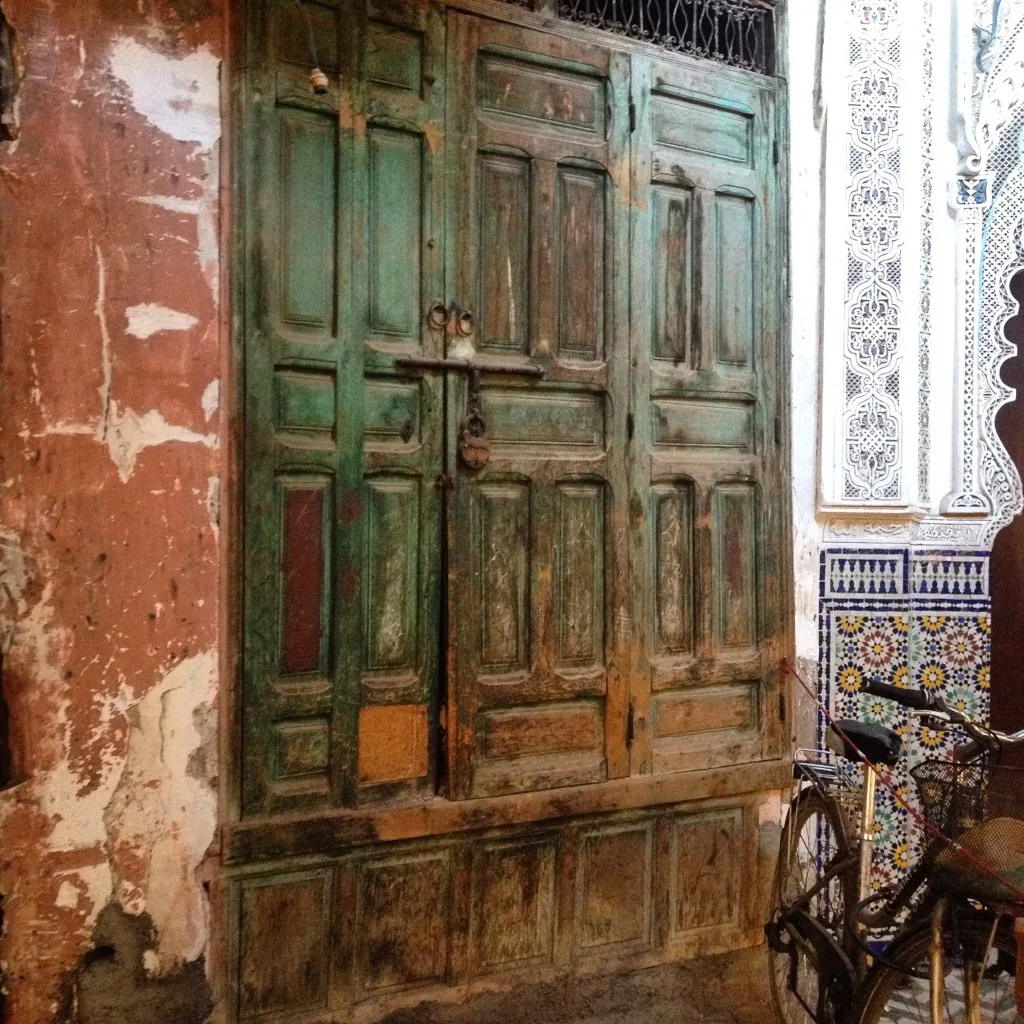
How would you say living there has changed you as a person?
In a lot of ways it has made me have a much more global view of the world. My close friends and family may find that hard to believe as I was pretty worldly to begin with but it’s been a change on a bigger scale. We see different news and have a different view of the world and our place in it. When things happen in Europe or the Middle East it’s a lot closer to home.
For example when people in the US started paying attention to the Syrian refugee crisis, we had Syrian refugees on the streets. When the ebola epidemic was breaking out, it was a lot closer to home. In the same sense I also have seen just how HUGE the world is. Overall, I’ve had experiences that I would never have had in the US that have made me become a better person.
One other thing – I’ve gained a LOT more patience. Dealing with things in Morocco takes time and if you don’t have patience you’ll go crazy. FAST.
Do you find certain feminist aspects more challenging or freeing living in Morocco?
I think living here as certainly changed my opinion of what it means to be a feminist. I fully and unequivocally support equal rights for women and Morocco has a long way to go but there is hope. It’s completely possible here to be a female and work, vote, have access to services etc. That being said, it’s not always easy.
I also think that in the western feminist movements there needs to be discussions around the fact that feminism can mean the protection of the rights each woman wants. For example many would say if you’re a feminist “throw off the veil, women shouldn’t be “subjected” to that. Truth be told, many women WANT to wear it.
Those rights should also be supported. I think overall many of my ideas of how things should be are challenged here but I also recognize that as a society the culture isn’t there yet and it has to be an organic process, not something that’s forced from outside.
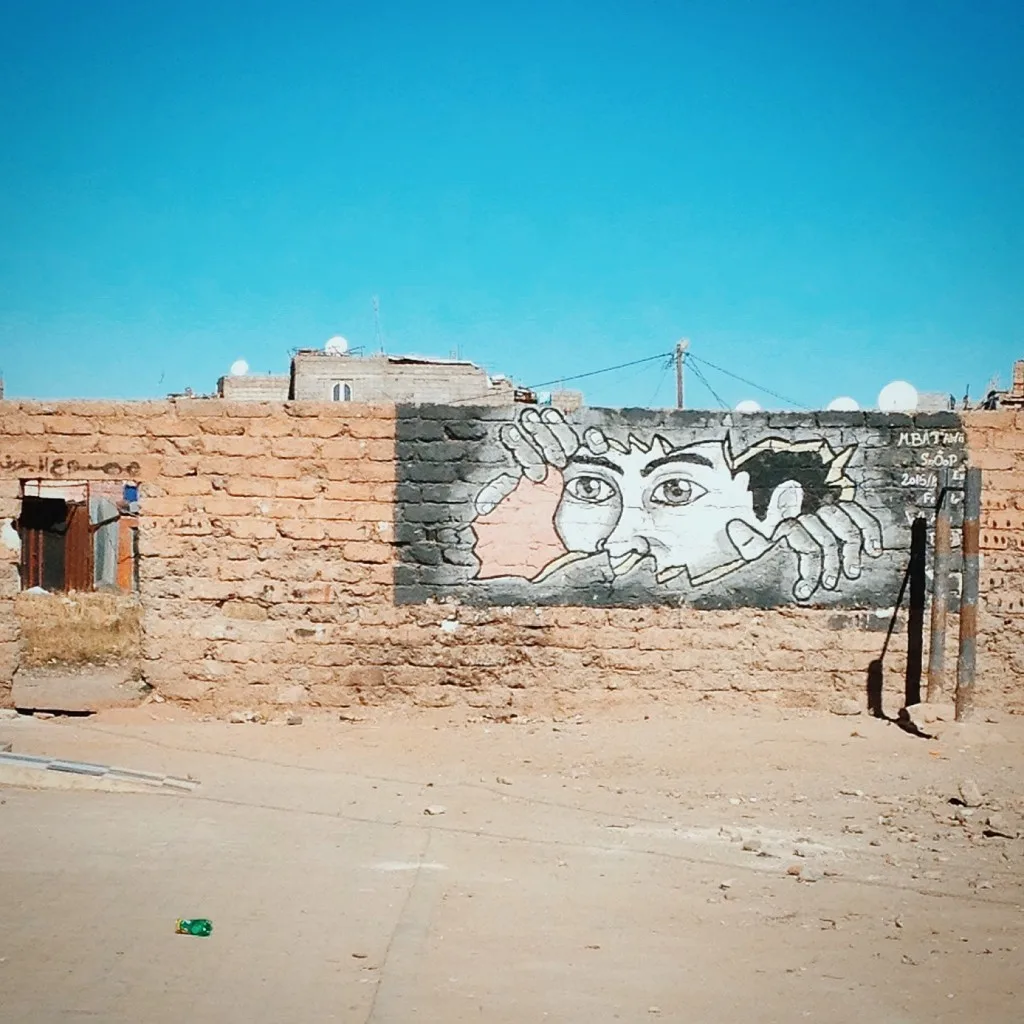
Did you have difficulties with differences in expectations about child-rearing between the two cultures?
Absolutely. I wrote a post on discipline awhile ago but this is an ongoing issue. I think that in every marriage this becomes an issue as soon as kids come into the picture. Now toss in some well meaning aunts, uncles and grandparents on both sides and you’ve got a whole bunch of opinions wanting their place at the table. My husband and I were very clear from the beginning that we were not going to use physical punishment with our kids.
It is very common in Morocco for parents to use physical punishment. Because we both were on the same page it was not an issue. That being said, we also had to keep on top of the school and teachers. While it is technically against the law here, many teachers and schools look the other way when it comes to physical punishments or threats of “hitting.”
My in-laws didn’t get why we were so against this but our kids are not less well behaved than other children and I hope they feel more respected as people because of this.
How have your kids adjusted to life in Morocco?
Depends on the day. I wish I could say “oh they just slipped right in and haven’t looked back.”
That would be a lie.
They have struggled in the way that anyone struggles when being put into a new country, new languages, and new cultures. Some days are really good while other days are a challenge.
They get homesick.
They miss things.
They miss family and friends.
They have made some friends here, and they play on a soccer team – that has helped them meet people. The first six months were tough as they learned the language. Now they flip between the two easily and are able to communicate with other kids. This has been a big help. While they’ve found their way I don’t think they’ve settled. This makes things difficult for them and for us. But, we’re working on it.
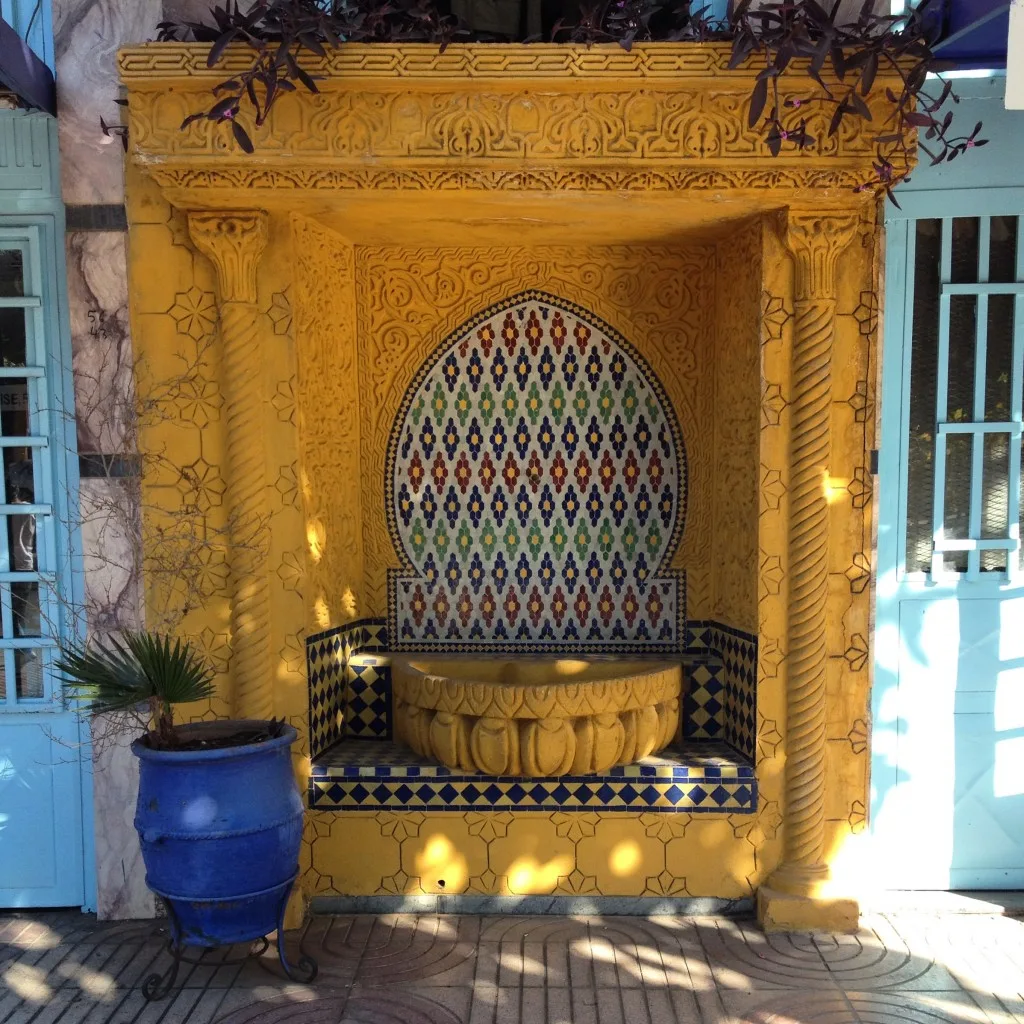
How is school different and how far have they progressed?
School here is very different. As M says “it’s not fun, at all.” The kids really miss American schools. They miss the emphasis on creativity and interactive learning styles. Moroccan education isn’t there yet. It’s still very rote and by the book.
K struggles because he likes to be able to move and in school here you sit in your desk for a long time. We’ve been looking for other options but overall, many of the schools are the same. There are some very high priced schools attached to different foreign missions in Morocco but the price tag makes them out of the question.
What is interesting to me is that both boys are very good in math and teachers are always giving us that feedback. There is a huge emphasis placed on math and sciences in Morocco and so knowing they are excelling in that area is reassuring – especially since I just barely passed every math class I ever took.
Today they both can speak Moroccan Arabic. M (11) can read and write in Arabic at a decent level but still behind his classmates. K (9) is struggling with reading and writing in Arabic. M can read and write in French very easily but struggles with speaking. K can also read in French and write in French. He also struggles with speaking.
In English M can read, write, and speak (obviously). He has tried to keep up with appropriate age level by reading and also taking classes at an English language school on weekends. K can not read fluently in English yet but he also is taking classes and we are working at home to increase his proficiency.
What’s one thing you’ve learnt about yourself that’s really surprised you?
I like to be at home. That sounds so strange but in my life in the US I was always on the go. Today, I really love being able to spend an entire day at home working, watching movies or reading books. I thought that kind of life would drive me crazy and it’s true I still love to travel and look forward to it but, I equally love being at home.
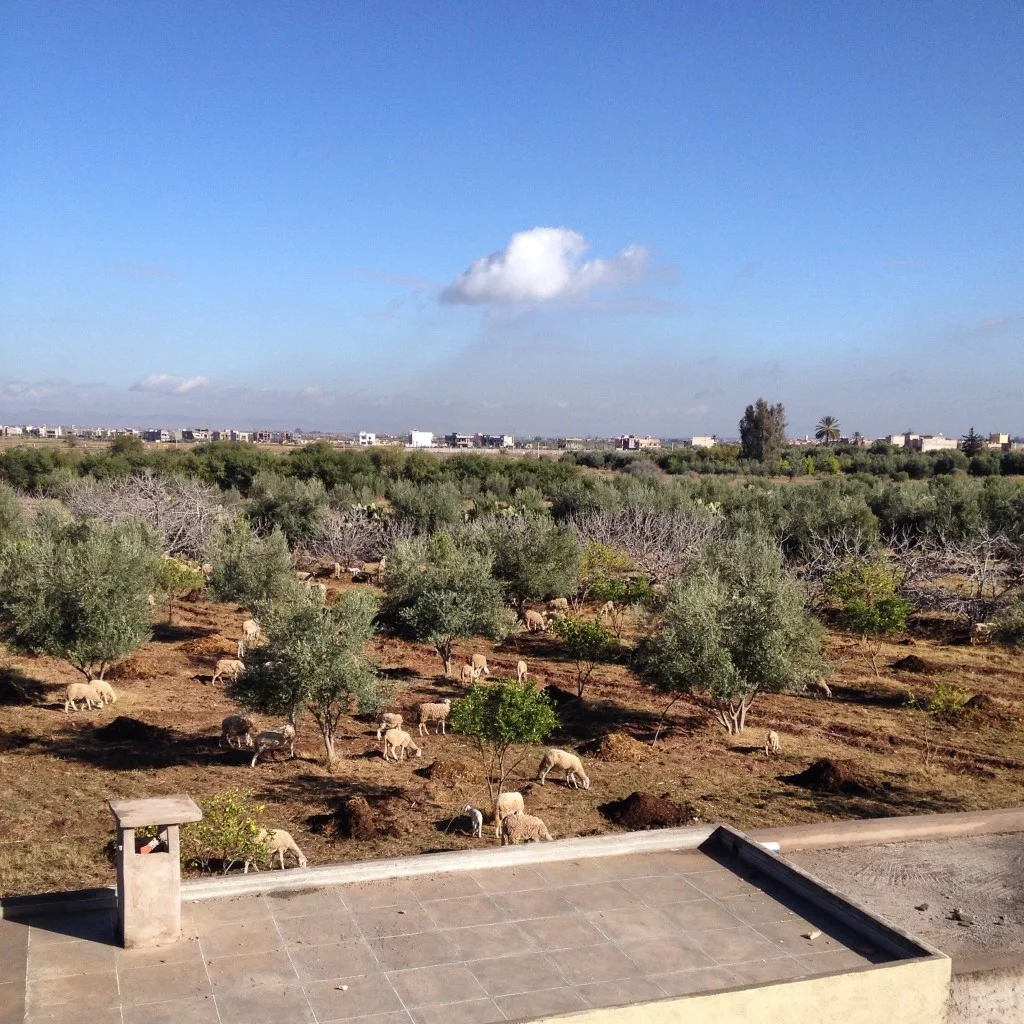
What are your thoughts on moving back to the US – both if you had to tomorrow and longterm, when the kids are grown and/or in uni?
My family might get upset at this response! To be honest I don’t have desires right now to be in the US. I miss plenty of things, mostly my family, but I don’t see a lot of opportunity for us there right now. The cost of living is high, healthcare is crazy expensive, the climate against Muslims is strong and frankly all that kind of scares me.
We’re very comfortable and successful where we are right now so if I HAD to go back it would be really tough. Down the line, who knows? We think given that our kids will have 3 languages under their belt they will have a lot of options for higher education so who knows where that will take them. One day maybe we would be happy to go back, have a small house on the ocean or a lake to pass our days. We’d also love to buy an RV and travel around North America. Who knows!
What was the biggest surprise of living in Morocco?
The cost of things. Granted life here is still much more affordable than the US, it’s not as cheap as everyone thinks. This is especially true for “luxury items,” and I don’t mean Range Rovers. Good quality clothing costs money. Anything that is imported, which is just about everything, is highly taxed and therefore quite expensive. That being said things like flights to Europe are incredibly cheap so it’s a balance.
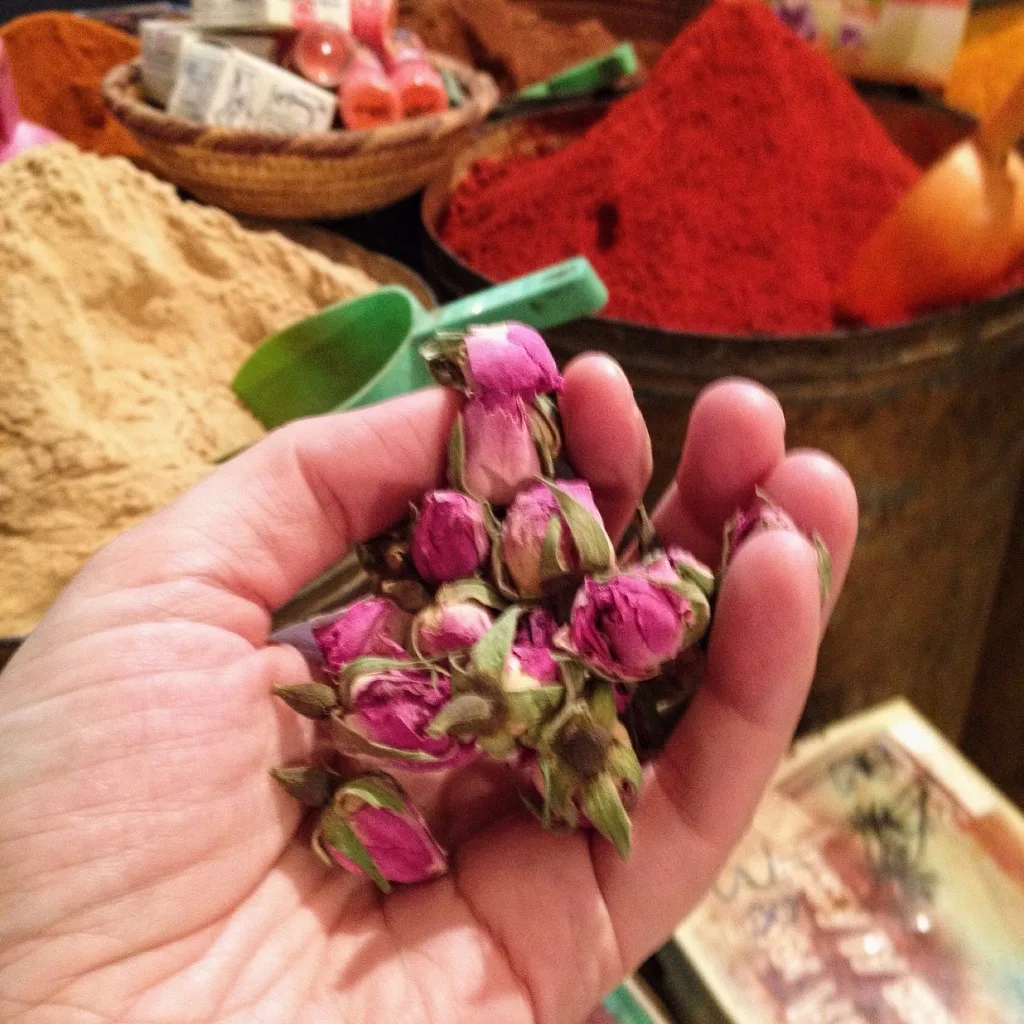
What do you miss the most?
Besides my family. Cheese. There is some here but it’s expensive.
Do you notice an interfaith atmosphere there or does it seem to be predominantly Muslim? If so are the Faith’s integrated or segregate – basically is it an issue or a non issue there? We hear about the exodus of Moroccan Jews to Israel but surely it wasn’t all of them and were they the only other faith there?
Yes, there is an interfaith atmosphere. There are a few churches in Marrakech as well as in other cities. Other faiths are not only tolerated but allowed to freely worship. They however are not allowed to prosthelytize. I’ve never seen or heard anything negative about people of other faiths.
My mom went to church when she was here visiting and it’s one of the experiences she often talks about. When she reported back I was actually really surprised to hear how many people were there. I hadn’t realized there would be so many people.
Morocco was a French protectorate and the French set up a lot of schools in the country – many still run today as Catholic schools. There is even a nunnery in Casablanca (they’re from Central America and make some amazing Mexican/central American food that is for sale!)
There also are synagogues in many cities. I would say there are probably more Christians living in Morocco now than Jews but the kingdom is doing a lot of work to revitalitize synagogues and other important Jewish sites around the country. There are tens of thousands if not more Jews that visit yearly either as a pilgrimage or as tourists – many who have Jewish-Moroccan ancestry.
Whoa!
That got really long. If you’re still with me thanks for hanging in! I hope I answered a bunch of questions everyone had and if you have more drop them in the comments, and I’ll save them for another post. I will try to do more regular updates, maybe every 6 months or so?
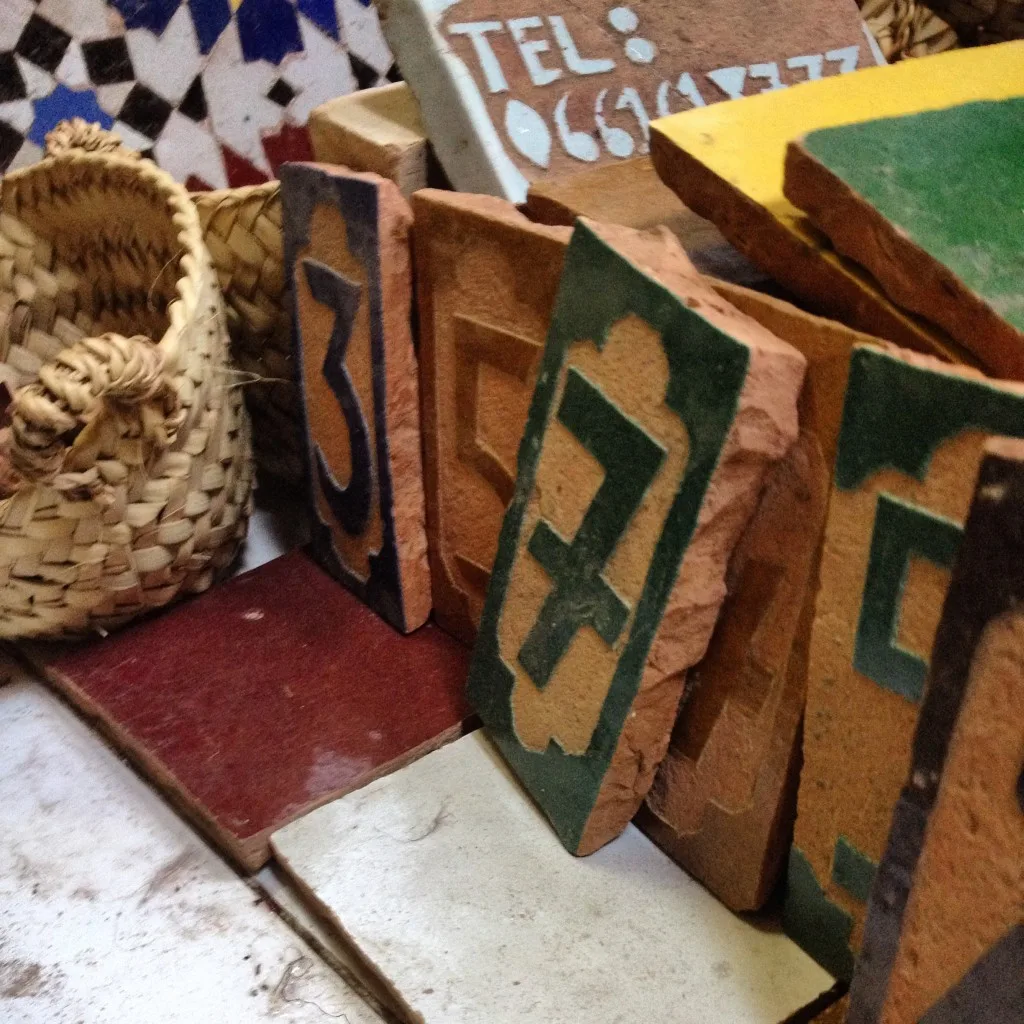
Lb
Friday 20th of May 2016
Hi Amanda, I'm planning my move to Morocco and trying to figure what are the best household items to take with me. Do you have anything in particular that you can't live without or wished you should've taken with you?
Amanda Mouttaki
Thursday 26th of May 2016
-- Fitted bed sheets -- kitchen tools that are good quality especially mixing bowls pots and pans -- Good shoes - like tennis shoes/trainers they have then here but quality not as good -- any favorite make up or skin care products. Again there's a lot here but you may not find what you know and love. -- undergarments (bras/underwear) - again it's here but it's not very good.
Those are the biggies!
Marie-Claude
Wednesday 2nd of March 2016
Dear Amanda, I'm following you on FB and love your blog updates. I have a special interest as I have met a lovely Moroccan man with whom I have had a relationship for the last 6 months. Getting your view on integrating this new culture, religion and way of life is enlightening and reassuring. So many people only have words of warning, not seeing that love can strike people regardless of their culture, religion and way of life...
As I go back to Morocco on a regular basis, your blog posts and Facebook posts are always a delight to read!
na
Friday 12th of February 2016
Hi / salam,
If I'm not mistaken you implied that you don't know and are not seeking knowledge of classical Arabic. This is almost unimaginable for a Muslim. This is the language of the Quran, the language of the prayer, your daily supplications, the language in which you will be questioned in the grave. I don't want to come across as condescending at all, but I'm just highlighting how fundamental this language is in understanding the essence of being a Muslim. Don't forget that you also attain reward from Allah just through learning the language, let alone using it.
Many revert sisters fall into the trap of adopting more of the culture than the religion of their boyfriend / husband. If you are a revert by choice, please be aware of this so you can avoid falling into it. Yes, every Muslim has a culture but religion takes precedence. I'm sure with your level of education and enthusiasm you will be fluent in no time!
Take care.
Nisaa Muhammad
Sunday 3rd of July 2016
I too am a Muslim that has lived all over the Middle East. I have NO interest in learning classical Arabic. I know enough to pray. I have learned about 1 juz of Quran and thats about all the Fusiah I am going to learn. Being able to talk to people on a daily basis is enough for me. Do I think Arabic is important, yes, and I made sure my children learned to read and speak Fusiah. I can tell you from speaking to MANY people living abroad, they feel the same way. So while it may be unimaginable to YOU trust and believe it is not unimaginable for MANY Muslims around the world.
Younes M.
Saturday 13th of February 2016
Wa Alaykum Salam, The essence of being a Muslim can be found in many things, according to the Quran and the prophet's Sunna, including but not limited to: - Being good to one's wife/husband - Being good to one's parents - Smiling to your fellow man (it's a form of charity) - Remembering Allah - Inviting people to Allah's way in the kindest way possible (this one is for you) "Invite to the way of your Lord with wisdom and good instruction, and argue with them in a way that is best. Indeed, your Lord is most knowing of who has strayed from His way, and He is most knowing of who is [rightly] guided." 16:125 - Salat (Can be performed with minimal Arabic. Although, learning more Arabic to recite Quran and rememberance sentences is very desirable). Etc. etc. etc. Nowhere in the Book or the Sunna is it ordered to learn the Arabic language to attain a higher form of piety in the eyes of God. The One who created folks with different mother tongues and skin colors is capable to understand his creation. May I also remind you of Godly people and prophets who lived thousands of years ago since Abraham and didn't know a word of Arabic and who were Muslims. Are they not up to your standards? The more you let go of your cultural supremacy, the closer to the essence of Islam you will be. Arabic is but a vehicle. Like a beautiful ceramic mug that brings out the dark brown color of coffee. Yet, one could taste the coffee just as well with different types of mugs. I am not saying learning Classical Arabic is not a good thing. It's very important. I am saying it's certainly not a prerequisite for leading a godly life or getting into heaven. In Morocco, there are Berber indigenous people born Muslim who do not know how to read and write, do not even use colloquial Moroccan but they know a few short Surahs and supplications here and there to be able to pray. But in their heart of hearts, they pray to Allah in silence in their language and He hears them. I honestly think, that in the times we live in, the best thing that could happen to a convert/revert is to meet Islam before meeting Muslims. P.S. I'm not a revert. I was born into this religion and I do speak Classical Arabic.
Amanda Mouttaki
Saturday 13th of February 2016
Normally I don't respond to comments from people who like to leave criticism without even attaching their name. Want to know the #1 reason people leave Islam? It's because of "well meaning" people who leave "criticism" such as you have. Let me introduce you to someone that is not currently interested in learning classical Arabic - me. When I moved to Morocco the #1 priority was learning conversational Arabic so that I could survive and begin to become a part of the society I lived in. Maybe down the line learning classical Arabic will be a part of my life but I only have so many hours in a day and that means I have to prioritize. I am responding only so that other people know they're not alone if they choose to make that decision.
Leave your criticism and assumptions at the door. I have been married for 10 years with my husband for 13 so rest assured I'm not "falling into a trap," I just don't fit the stereotype you have.
Mandy Windham Baahmad
Saturday 6th of February 2016
Thank you for sharing our thoughts. I couldn't help but nod my head knowing exactly what you meant and I haven't even lived there. I'm happy you all seem to be adjusting to most things. The opportunities you are affording your children just can not be provided here in terms of travel and learning languages and perspectives on world events. May God help you. Do you see yourself staying on Marrakech or relocating to any other city? And if so which one?
Amanda Mouttaki
Saturday 6th of February 2016
I think we'll stay in Marrakech though we also love Essaouira and a few other coastal cities, so who knows!
Younes
Tuesday 26th of January 2016
Thanks for sharing your personal journey. I enjoy these posts the most. I wanted to add a few things, if I may, regarding the place of the French language in Morocco. French is widely spoken. Much of the signs, government forms and especially business paperwork are in French. Although that doesn't mean that it is well spoken/written. It is taught in the public and private systems, but it remains a foreign language. It's the language of the colonizer. France used it as a way to give access to the indigenous population to French education, political and military positions. Many of the people who took leadership positions after the independence were educated by French Catholic nuns in Morocco or in universities or 'grandes ecoles' in France. The same mostly holds true for example for Tunisia, Lebanon and a lot of Sub Saharan African former French colonies. This was by design. The Moroccan elite in place after the 50s (independence) did little to remedy this situation and actually perpetuated the status quo. This was also by design. Fast forward to where we are. A Moroccan child will learn all subjects from Kindergarten to senior year of high school in Arabic (From math to social studies) for the most part. French is mostly taught as a language and not the language of the content. Here's the kicker. Once a in college, a Moroccan freshman will only be given the option to study in French (unless your major is Arabic Studies). The result is that the country has so many college graduates but most are not prepared for the real world and struggle with their speech and writing for the rest of their lives.
So French is a language that people in Morocco use to signal and give access/opportunities. The same way people in America get rid of their Southern accent to signal education with the distinction that in Morocco, we are speaking about a foreign language brought by a foreign power that plundered resources and killed Moroccans for at least 4 decades. It is also worth noting that many Moroccan immigrants in France are in a precarious situation because French society is notoriously xenophobic despite the occasional token 'Arab' minister or member of parliament. It's not easy finding a job when your name is Mohamed in France. Education, EU birth and citizenship notwithstanding.
So my perspective is not exactly that one should do whatever they can to get ahead. There's a lot more to it. Much of this is lost on the younger generations and some of their parents too. They're easy to spot. You will, sometimes, hear them speaking in heavily accented French to each other.
Why not just speak Arabic, write in Arabic and be proud of it, you might ask? Low self-esteem, poverty, economic and cultural colonization and Stockholm syndrome all wrapped into one little 'Bonjour' one Moroccan says to another. As far as I'm concerned, that is the only thing they signal to each other.
Amanda Mouttaki
Wednesday 27th of January 2016
Thanks for adding your thoughts here. As mentioned I was/am planning to do a longer post about the French/Arabic issue. ;)